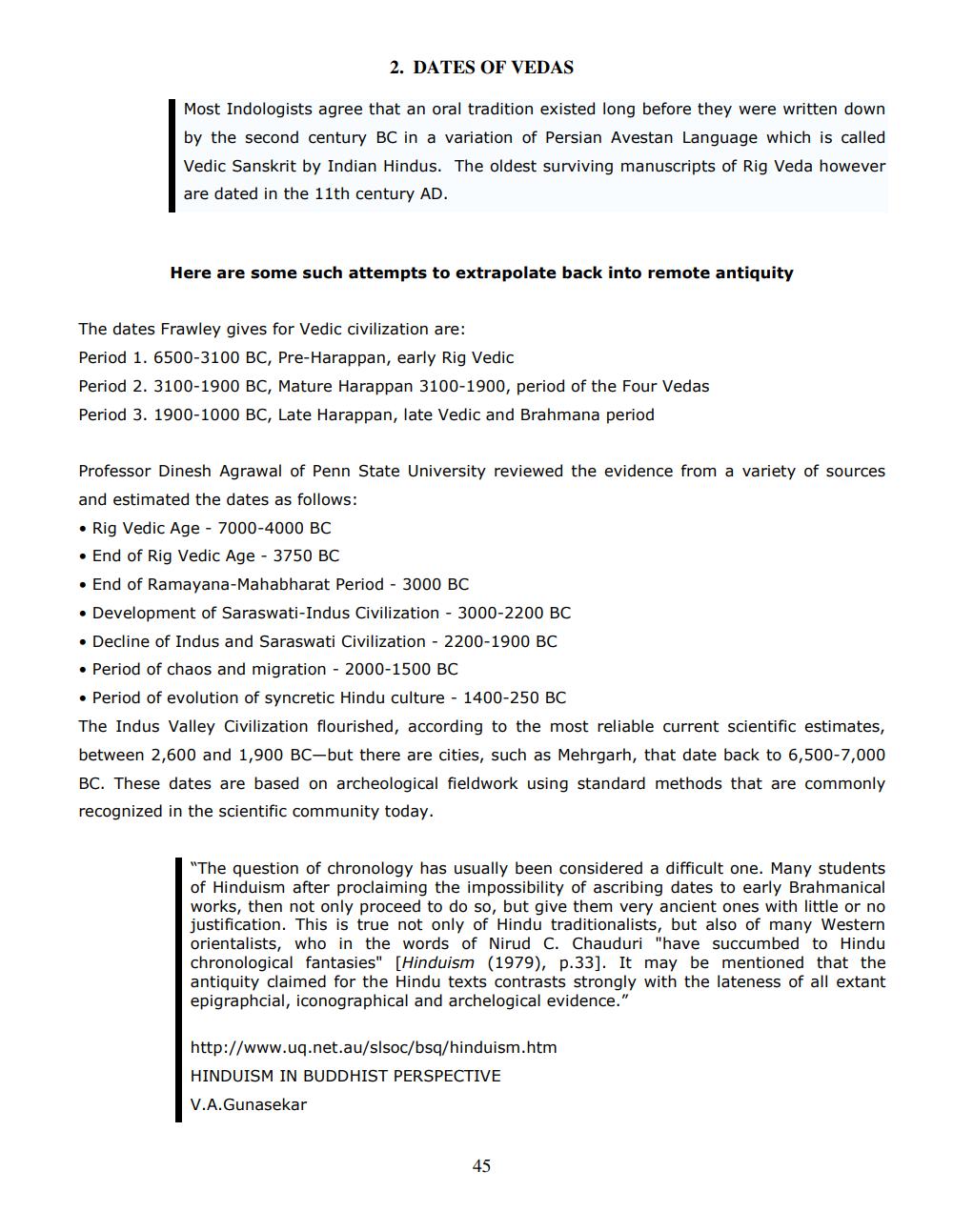________________
2. DATES OF VEDAS
Most Indologists agree that an oral tradition existed long before they were written down by the second century BC in a variation of Persian Avestan Language which is called Vedic Sanskrit by Indian Hindus. The oldest surviving manuscripts of Rig Veda however are dated in the 11th century AD.
Here are some such attempts to extrapolate back into remote antiquity
The dates Frawley gives for Vedic civilization are: Period 1. 6500-3100 BC, Pre-Harappan, early Rig Vedic Period 2. 3100-1900 BC, Mature Harappan 3100-1900, period of the Four Vedas Period 3. 1900-1000 BC, Late Harappan, late Vedic and Brahmana period
Professor Dinesh Agrawal of Penn State University reviewed the evidence from a variety of sources and estimated the dates as follows: • Rig Vedic Age - 7000-4000 BC • End of Rig Vedic Age - 3750 BC • End of Ramayana-Mahabharat Period - 3000 BC • Development of Saraswati-Indus Civilization - 3000-2200 BC • Decline of Indus and Saraswati Civilization - 2200-1900 BC • Period of chaos and migration - 2000-1500 BC • Period of evolution of syncretic Hindu culture - 1400-250 BC The Indus Valley Civilization flourished, according to the most reliable current scientific estimates, between 2,600 and 1,900 BC-but there are cities, such as Mehrgarh, that date back to 6,500-7,000 BC. These dates are based on archeological fieldwork using standard methods that are commonly recognized in the scientific community today.
"The question of chronology has usually been considered a difficult one. Many students of Hinduism after proclaiming the impossibility of ascribing dates to early Brahmanical works, then not only proceed to do so, but give them very ancient ones with little or no justification. This is true not only of Hindu traditionalists, but also of many Western orientalists, who in the words of Nirud C. Chauduri "have succumbed to Hindu chronological fantasies" [Hinduism (1979), p.33). It may be mentioned that the antiquity claimed for the Hindu texts contrasts strongly with the lateness of all extant epigraphcial, iconographical and archelogical evidence."
http://www.uq.net.au/slsoc/bsq/hinduism.htm HINDUISM IN BUDDHIST PERSPECTIVE V.A.Gunasekar




